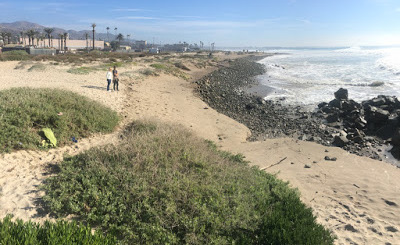
09 • 13 • 2022
Reduced permit fees for coastal restoration and public access projects in California
Reduce permit costs and processing times for projects related to enhancing public access or restoring habitats and ecosystems.
We are committed to the conservation and restoration of the California coast, our state’s most iconic and beloved natural feature, and to ensuring that all Californians have equitable access to the coast so they can enjoy and benefit from it.
From that basis we supported AB 2160 (Asm. Bennett, D-37). The bill will provide the simple yet powerful reform of reducing costs and processing times for non-profit organizations or public agencies seeking a Coastal Development Permit (CDP) for projects related to enhancing public access or restoring habitats and ecosystems.
The first way the bill will do this is by allowing cities and counties to waive or reduce coastal development permit fees for these types of projects. These fees are real obstacles to not-for-profit entities working in the public-interest to rebuild the environmental vitality and accessibility of the coast. Accordingly, signing this bill would reinforce and extend your administration’s laudable Cutting the Green Tape initiative, to accelerate restoration statewide.
Another way this bill will accelerate coastal restoration and expand equitable access is by allowing qualifying applicants to appeal directly to the Coastal Commission if the fee waiver or reduction is denied at the city or county level. This provision ensures that coastal restoration and access projects have recourse for advancement if they are unfairly denied a CDP due to local prejudices that unfortunately persist in many communities.
The Commission’s permit fees are typically lower than those of local governments, and the Commission is already required to closely consider fee waiver requests from NGOs. Because public access and restoration projects advance core Coastal Act goals and policies, Commission staff are well-versed in how to analyze and process these types of projects, and can process such applications efficiently.
If the Commission issues a fee waiver and a permit, the relevant Local Coastal Plan would be their standard of review, ensuring that local priorities and policies will be respected and upheld. Maximizing public access and restoring coastal ecosystems are the two central pillars of the Coastal Act. They also directly advance your administration’s strategic natural resources goals, such as the conservation of 30 percent of lands and waters by 2030, and the Outdoors For All initiative Non-profits and agencies seeking to undertake projects that advance these goals can face prohibitive obstacles in the form of high fees, and inertia or outright resistance from local bureaucracies. Reducing their costs and providing recourse for unreasonable denials, as provided by AB 2160, will help expand access to the outdoors for all Californians, and accelerate restoration of California’s environment.
